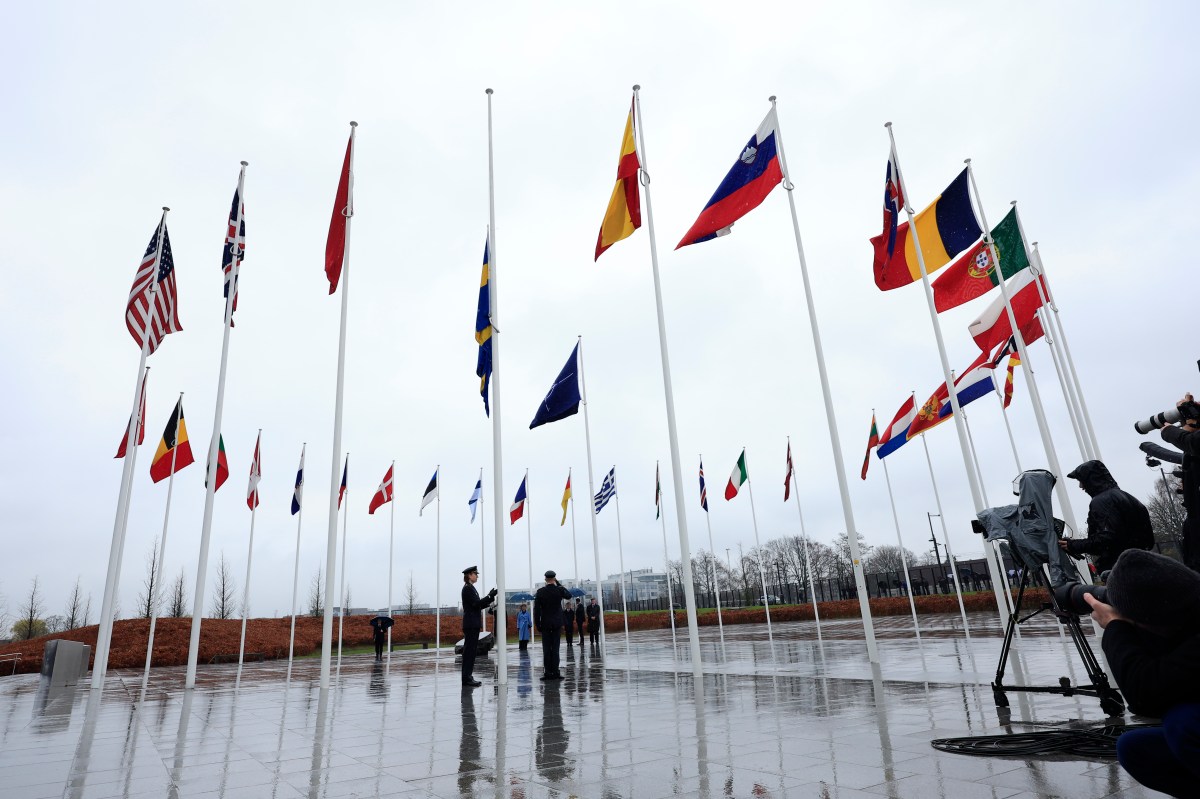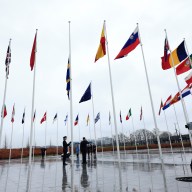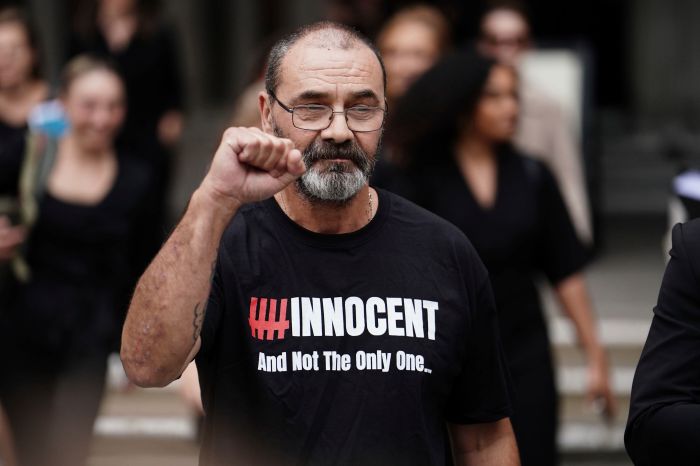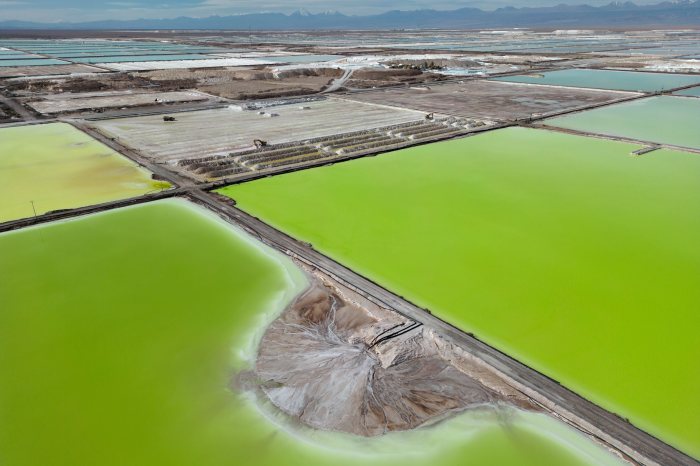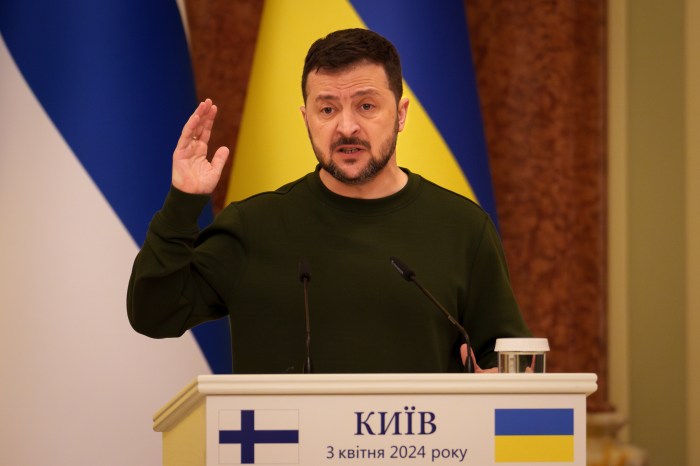BUENOS AIRES, Argentina (AP) — Argentina formally requested on Thursday to join NATO as a global partner, a status that would clear the way for greater political and security cooperation at a time when the right-wing government of President Javier Milei aims to boost ties with Western powers and attract investment.
The request came as NATO’s Deputy General Secretary Mircea Geoana held talks in Brussels on regional security challenges with visiting Argentine Defense Minister Luis Petri.
Geoana said he welcomed Argentina’s bid to become an accredited partner in the alliance — a valued role short of “ally” for nations that are not in NATO’s geographical area and not required to take part in collective military actions. NATO membership is currently limited to countries of Europe, Turkey, Canada and the United States.
The designation could allow Argentina access to advanced technology, security systems and training not previously available to it, the Argentine presidency said.
“Argentina plays an important role in Latin America,” Geoana said at the NATO headquarters. “Closer political and practical cooperation could benefit us both.”
Milei has been pushing a radical libertarian agenda aimed at reversing years of protectionist trade measures, overspending and crippling international debt that have plunged the country’s economy into a tailspin.
Over his past four months as president, he has reshaped Argentina’s foreign policy to one of almost unconditional support for the United States — part of an effort to return Argentina to prominence in the global economy after past administrations allowed relations with Washington and European allies to wither.
Milei’s government is also seeking security benefits through warming ties with Western countries. On Thursday, the U.S. government announced it was providing Argentina with $40 million in foreign military financing for the first time in more than two decades — a grant that allows key U.S. allies like Israel to buy American weaponry.
The funds, intended to help Argentina equip and modernize its military, will help foot the bill for 24 American F-16 fighter aircraft Argentina bought from Denmark earlier this week. Defense Minister Petri hailed the acquisition of the advanced warplanes as “the most important military purchase since Argentina’s return to democracy” in 1983. The $300 million price tag has drawn criticism from Milei’s political opponents as he slashes spending across the government.
Formally partnering with NATO requires the consensus of all 32 NATO members. Argentina’s ties to key NATO ally Britain have been fraught since 1982, when the two went to war over the contested Falkland Islands in the South Atlantic.
Other global partners of the Alliance include Afghanistan, Australia, Iraq, Japan, the Republic of Korea, Mongolia, New Zealand and Pakistan. Currently the only NATO partner in Latin America is Colombia.
Conferring the status of “global partner” on a country does not mean NATO allies would come to the country’s defense in the event of an attack. That commitment — laid out in Article 5 of the North Atlantic Treaty Organization’s founding treaty — is limited to full members of the alliance.
NATO’s dialogue with Argentina began in the early 1990s. In a largely symbolic move to thank the pro-American government at the time for sending troops on peacekeeping operations to Bosnia, former President Bill Clinton designated Argentina “major non-NATO ally” in 1998.

